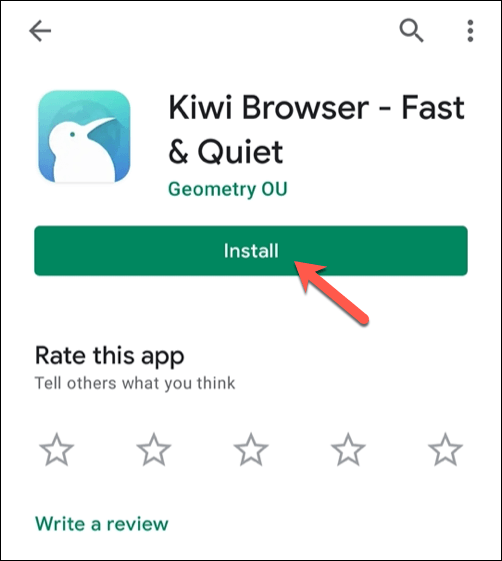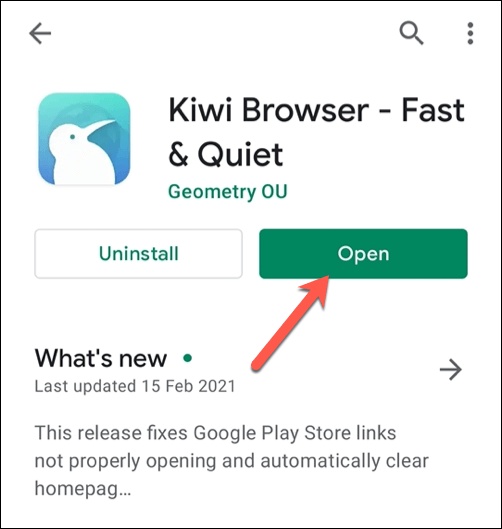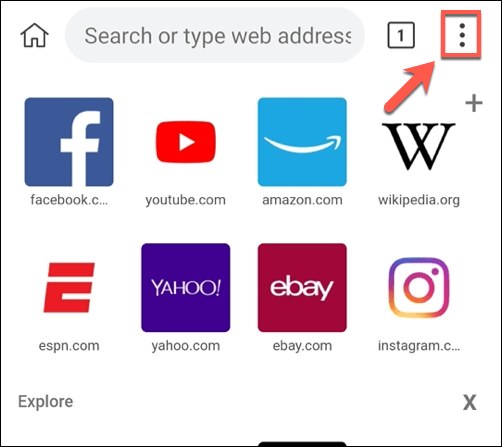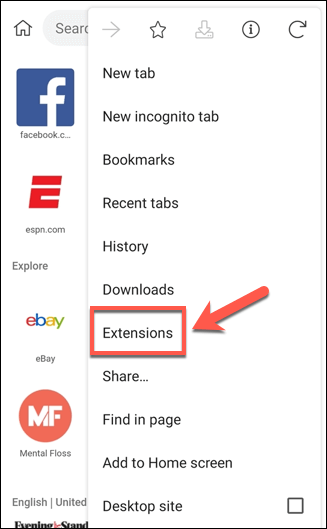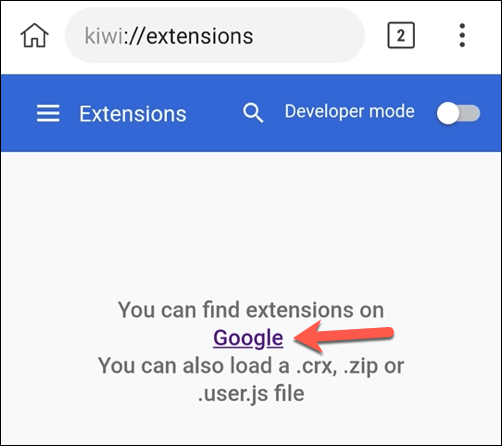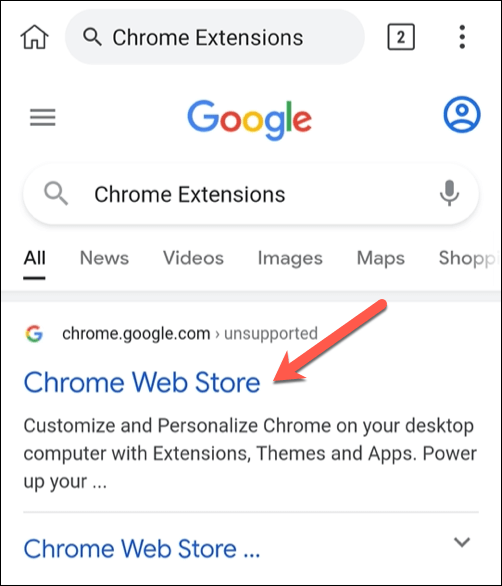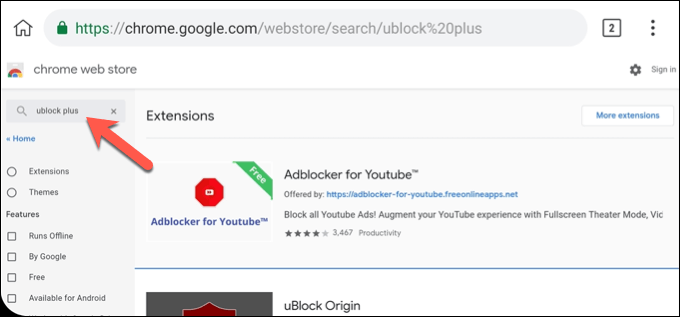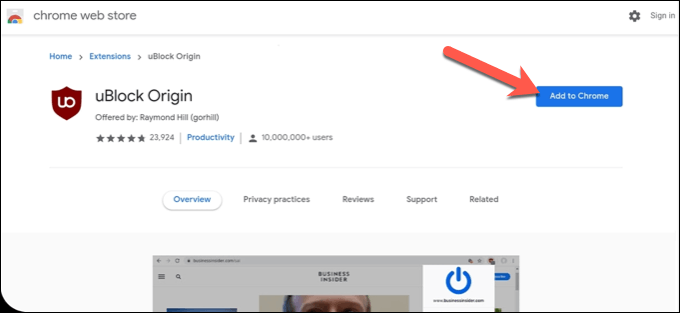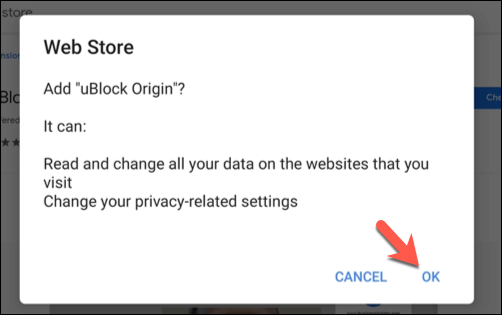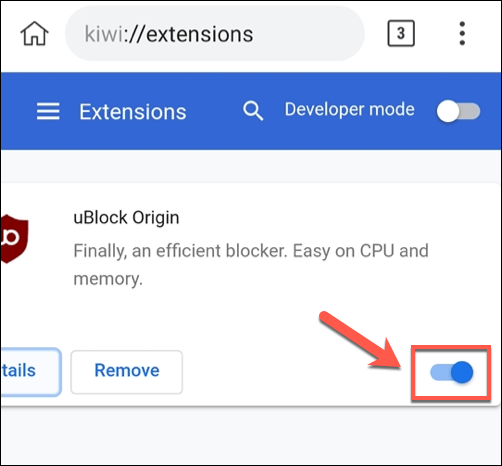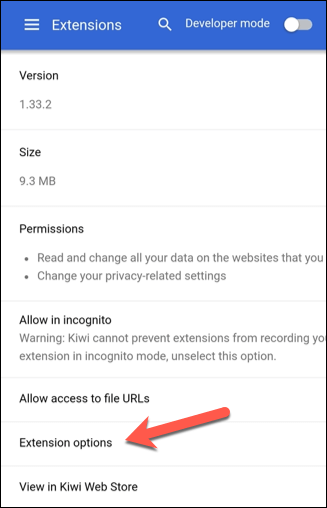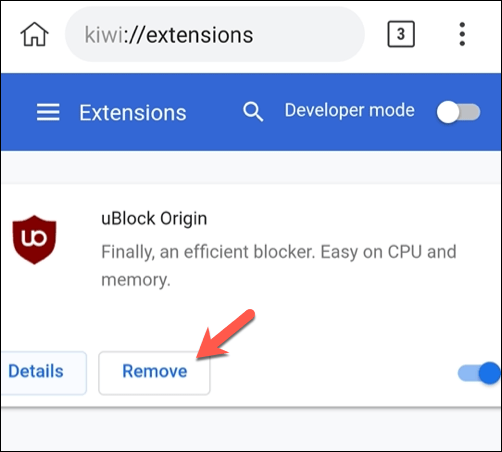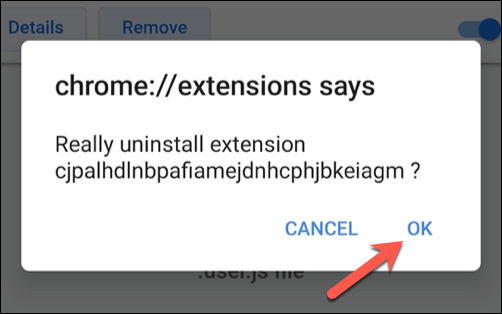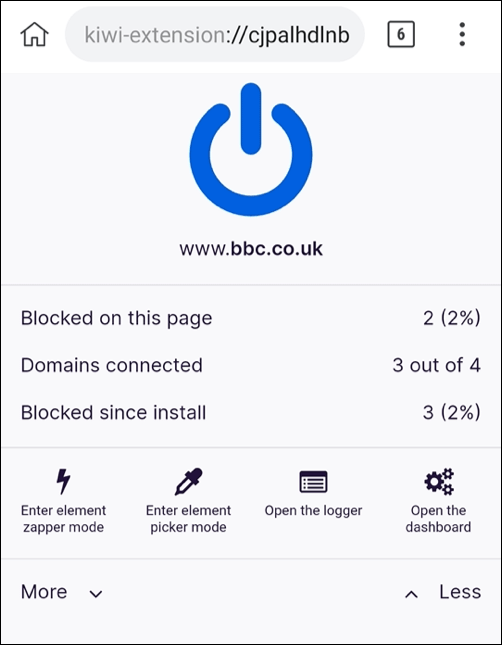However, if you are looking to install desktop Chrome extensions on Android, there is a way to do so. You’ll need to switch browsers, but using Chrome extensions on Android is possible, thanks to the Chromium-based Kiwi browser. To get started using Kiwi, here’s what you’ll need to do.
What Is Kiwi Browser and Is It Safe?
The Kiwi Browser is an open source alternative to the main Chrome browser. It uses the same core technology, based on the Chromium project that underpins Chrome, Microsoft Edge, and a number of other browsers. As far as the interface goes, it isn’t too dissimilar to the standard Chrome experience, but with a few added extras. Not only does Kiwi Browser allow you to install Chrome extensions on Android, but it also blocks ads and pop-ups, protects against browser cryptojacking, and automatically accepts certain browser alerts (such as GDPR acceptance) for a better browsing experience overall. It also has some additional privacy features, with an integrated tracking blocker to stop your web activity being tracked. There are also some speed enhancements compared to the standard Chrome browser, thanks to the removal of some Google-specific features. Overall, Kiwi is a lot like Chrome, but without the Google tag. It doesn’t support Google account syncing, but this is probably a good thing, offering you more privacy for your data. Kiwi Browser is completely safe to use and, thanks to extension support, you can extend its functionality even further.
How to Install Kiwi Browser on Android
If you want to install Kiwi Browser on Android, the easiest method is to use the Google Play Store. The Kiwi Browser is updated regularly, but if you’d prefer, you can compile it yourself on your PC using the Kiwi GitHub repository and install the browser manually using the compiled APK file. This code is the same as the Kiwi Browser release via the Play Store, and should work exactly the same.
Installing or Removing Chrome Extensions in Kiwi Browser
Once you’ve installed Kiwi and opened it first the first time, you’ll be presented with the initial tab menu. This is similar to the first tab menu in the official Chrome browser on Android, allowing you to customize the shortcuts and news items listed.
Finding the Best Chrome Extensions for Android
Kiwi Browser supports Chrome extensions, but that doesn’t mean the extensions support Kiwi. Most Chrome extensions are built with desktop browsing in mind. This means that, even if you can install some Chrome extensions on Android using Kiwi, it doesn’t necessarily mean that they’ll work. Unfortunately, there’s no easy way to check whether this is the case without installing them first. You’ll need to test each extension, making sure it works as expected and doesn’t cause your browser to become unstable or stop working. Some Chrome extensions on Android are known to work well, however. These include Evernote, Bitmoji, uBlock Origin, and Google Hangouts. If any extensions don’t work, you’ll need to remove them using the steps above and search for alternatives. You may also find that certain extensions (such as Google Hangouts) have their own independent Android apps available. If any apps you try don’t work, check if they have a similar app available in the Google Play Store.
Better Web Browsing on Android
Thanks to Kiwi, you’re free to use some of your favorite Chrome extensions on Android, giving you a better browsing experience. There are alternatives, however, with the Brave browser and Chromium-based Microsoft Edge browser offering a great experience for Android users (although without extension support). If you’re thinking about switching browsers, you might want to think about switching devices. It’s easy enough to switch from Android to iPhone, although switching from iPhone to Android is a little trickier. Whatever device or browser you’re using, make sure to audit your online privacy settings to keep your data safe from others.


